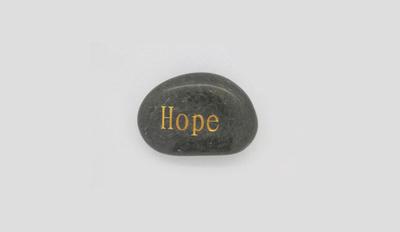Archive for January 2015
In the Depths of Divorce Despair? Here’s How to Find Hope
Simple ideas for finding the hope you need.
When you’re in the depths of divorce despair and you’re wondering whether or not you can stand the pain for one more second, you need to find hope. You need to find hope that you will stop hurting so much. And, you need to find hope that you can be happy again.
Some people find hope through prayer and their belief in something larger than themselves. They can find comfort in their faith. They know that no matter how alone they are feeling in any instant, they’re never truly alone.
But not everyone has this kind of faith and some find their faith faltering in the face of their grief.
How else can you find the hope you need to heal from your divorce?
You might find hope by spending time outdoors and connecting with nature. You might find hope by enjoying your children. You might find hope by playing with or cuddling your pet. You might find hope by talking with someone who understands the pain of divorce because they’ve been through it and survived to create a happier life for themselves. You might even find hope by reading inspirational quotes.
When I went through my divorce, I found my hope through all of these ways. I prayed, spent time outside, enjoyed the company of my young niece, played and cuddled with my pets, spoke with a therapist who had been there and wasn’t any more, and I read inspirational quotes.
Going on the hunt for inspirational quotes when you’re feeling depressed isn’t easy or fun. So, to help you out, here are my favorite quotes for moving past divorce despair.
- Your present circumstances don’t determine where you can go; they merely determine where you start. ~Nido Qubein
- “I will release the old, embrace the new and grow a vision of hope” ~Shiv Adhikari
- If you are going through hell, keep going. –Winston Churchill
- “You don’t always need a plan. Sometimes you just need to breathe, trust, let go and see what happens.” – Mandy Hale
- Grief is an emotional, spiritual, and psychological journey to healing. ~E. Kubler-Ross, D. Kessler
- Perhaps this is a sacred passage in which my insecurity is sacrificed for trust in whatever is to come. ~Noela N. Evans
- It is by going down in2 the abyss that we recover the treasures of life. Where u stumble, there lies ur treasure. ~Joseph Campbell
- Every adversity, every failure and every heartache carries with it the Seed of an equivalent or greater Benefit. ~Napoleon Hill
- I think that when everything goes wrong, it’s because nothing was right in the first place. ~Lani Diane Rich
- The truth is that pain is one of our greatest teachers… ~Daphne Rose Kingma
- Where there’s life, there’s hope. Cicero
- Grief is a time when we try to find our wholeness again after all has been lost. ~E. Kubler-Ross, D. Kessler #quote
- The human spirit is virtually indestructible, and its ability to rise from the ashes remains as long as the body draws breath. ~Alice Miller
- I can courageously handle anything as long as I take it one moment at a time. ~Sue Patton Theole
- What does not kill me makes me stronger. ~Neitzsche
- This too shall pass. ~Proverb
Maybe one of the ideas in this piece will help you find hope or maybe this piece will inspire you to find hope in another way. Regardless, finding hope is how you’ll make it through the most painful part of your divorce recovery journey and on to happiness again.
I’m Dr. Karen Finn, a divorce coach and advisor helping people just like you who are dealing with the stress and pain of divorce. You can join my newsletter list for free weekly advice. And if you’re interested in taking the first step toward working with me, you can schedule an introductory private coaching session.
If you’re looking for more help about how to find hope after divorce, read more articles in Dealing With Grief.
Want A Happy Blended Family? 5 Rules Stepparents MUST Follow
Love and respect is earned from a child, not demanded.
If you’re thinking of marrying someone with kids, or if you’ve got kids and you’re getting married, your kids are going to gain a stepparent. Blended families are challenging and cause stress on your marriage.
However, here are five rules for being a stepparent that help improve harmony in both your marriage and your blended family:
1. A stepparent is NOT the parent. A stepparent is a “bonus” parent in a child’s life. As a bonus parent, giving gifts in an effort to buy a child’s affection will not gain the status of new best friend. Your role is as another safe adult for the child to interact with. Your job is to model healthy life perspectives that complement those of their biological parents.
2. A stepparent co-creates the rules for their house with their spouse (the child’s parent). By co-creating the rules and supporting each other in their enforcement, you avoid becoming the evil stepparent. You’ll also create a home that you and your spouse will enjoy.
3. You can—and should—expect respect from the child, and show respect as well. As in any relationship, there will be times of struggle in the stepparent/stepchild relationship. Mutual respect is at the base of the best relationships. A stepparent/stepchild relationship needs mutual respect, too; but the onus for initial respect is on YOU. By respecting the child as an individual with likes, dislikes, opinions, emotions and a need to have alone time with each of their biological parents, you’ll model and teach a respect which might (if you’re lucky) grow into mutual love over time.
4. Show respect to their other parent. Never, EVER, speak poorly of the child’s other parent with even the slightest possibility of the child overhearing. Never allow anyone else (including your spouse) to speak poorly of the child’s other parent, either. Children love both of their parents. Part of your job is to encourage this love, regardless of your personal feelings. Kids also know they’re like both of their parents; if they hear you disparaging their other parent, they’ll see it as an attack on that parent, as well as an attack on them.
5. Your role is to give support, not direction (unless explicitly requested) to the biological parents. No matter how much you grow to love your stepchild, you will never know the full love and corresponding responsibility of being their biological parent. The biological parents are the ultimate rule-makers for the child. Your job is to support your spouse in helping to raise the child into a happy, healthy, contributing adult.
Honestly, these five rules for stepparenting are just the tip of the iceberg. Being a stepparent is a challenge, but has potential for tremendous rewards. By following these rules, you’ll have a solid foundation for navigating the challenges, so you can reap the rewards—a harmonious blended family AND a happy marriage.
I’m Dr. Karen Finn, a divorce coach and advisor helping people just like you who are dealing with the stress and pain of divorce. You can join my newsletter list for free weekly advice. If you’re interested in taking the first step toward working with me, you can schedule an introductory private coaching session.
This article originally appeared on YourTango.
What Makes Grief After Divorce So Hard?
The surprising reason is happiness.
A divorce can feel like a tornado has come through and wiped from the face of the earth everything you thought your life was. You’re walking around in a state of shock trying to make sense of what has happened. And you’re just not finding much of anything to rebuild your life upon. The grief can simply be overwhelming.
Why is it like this? Why do divorces hurt so much?
As odd as it may sound, we experience such profound grief after divorce because of our search for happiness. The search for happiness is in our DNA. It’s one of our primal drives. We’ll find temporary highs of happiness through movies, TV shows, thrills, adventure vacations, and even songs. But none of these totally satisfy our drive. The real path to happiness is both much simpler and more complex than that.
Relationships — profoundly meaningful relationships — according to a 2012 AARP Survey, are a key enabler for happiness. Seligman, the author of Flourish, further states that positive relationships are not only key to happiness, but well-being in general. And yet different types of relationships provide us with different types of happiness. Obviously, this begs the questions: What are the most meaningful and powerful relationships of all? Which ones have the potential for providing us the greatest happiness?
Although our family and friends can provide us with a sense of belonging and happiness, they do not provide us with our greatest happiness. There is a more meaningful and profound relationship. The holy grail of happiness is our intimate relationship — our relationship with our significant other. At a gut level, we all know this is true. This innate knowledge leads us to hope that once we’ve found “the one,” we’re set. We’ve got exactly the relationship we need for happiness to flourish for the rest of our lives. We believe that somehow now all of our troubles are over too.
Unfortunately, not all intimate relationships last a lifetime. And when they end, we’re grief-stricken and often inconsolable. We find ourselves falling from bliss into hell on Earth. We feel lost, alone, and unlovable. We can also feel angry, betrayed and a myriad of other emotions as we deal with the grief and stress of losing what we thought was our key to sustained happiness and well-being.
We’re struggling not only with the loss of our partner, but our grief causes us to ask deeper questions: Who am I — really? Can I ever be happy again? Could anyone truly love me in a deeply meaningful and profound way? This is why the grief of a breakup is so difficult. It’s not just the loss of love and the other, but the loss of who we thought we were and our dream of ultimate happiness.
I’m Dr. Karen Finn, a divorce coach and advisor helping people just like you who are dealing with the stress and pain of divorce. You can join my newsletter list for free weekly advice. And if you’re interested in taking the first step toward working with me, you can schedule an introductory private coaching session.
This article was originally published on YourTango.



